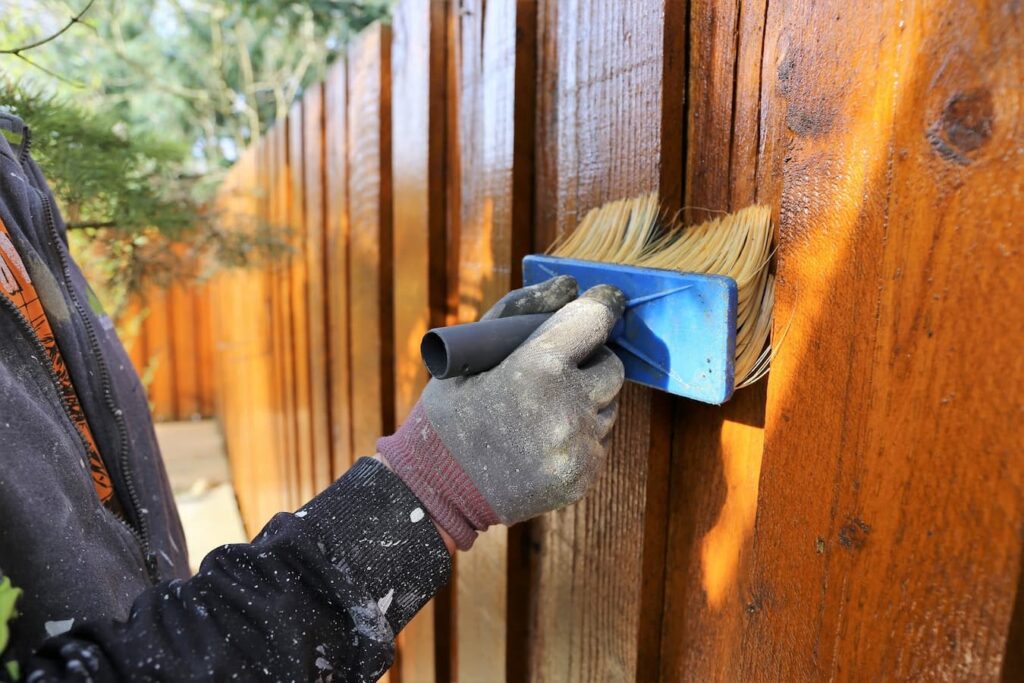When it comes to enhancing the security, privacy, and aesthetic appeal of your property, a well-constructed fence is an invaluable addition. However, the success of your fencing project largely depends on the expertise and reliability of the contractor you choose. In this context, opting for licensed and insured fencing contractors is crucial. This decision not only ensures high-quality workmanship but also safeguards you against potential risks and liabilities. Here’s why hiring licensed and insured fencing professionals is essential for your fencing projects, with a particular focus on quality and safety.
Ensuring High-Quality Workmanship
Professional Standards and Expertise
Licensed fencing contractors have undergone rigorous training and have met specific industry standards to earn their licenses. This credential signifies that the contractor possesses the necessary skills and knowledge to execute fencing projects effectively. They are familiar with the latest techniques, materials, and tools required to deliver a high-quality fence that meets your expectations and stands the test of time.
Adherence to Building Codes and Regulations
Building a fence involves more than just putting up panels or posts. There are local building codes and regulations that must be followed to ensure the structure is safe and compliant with legal standards. Licensed contractors are well-versed in these codes and ensure that every aspect of the project adheres to them. This adherence not only guarantees a safe and durable fence but also helps avoid potential legal issues that could arise from non-compliance.
Use of Quality Materials
Licensed contractors typically have access to high-quality materials that are not readily available to the general public. Their established relationships with suppliers mean they can source the best materials at competitive prices. This access to superior materials directly translates to a longer-lasting and more aesthetically pleasing fence. Additionally, they can advise you on the best materials suited for your specific needs, whether it’s wood, vinyl, aluminium, or another type of fencing.
Enhancing Safety
Protection Against Accidents and Injuries
Fencing projects, like any construction work, carry inherent risks of accidents and injuries. Licensed contractors are trained to follow stringent safety protocols to minimize these risks. They use appropriate protective gear and equipment to ensure the safety of their workers and anyone else on the site. Moreover, in the event of an accident, an insured contractor’s policy typically covers medical expenses, shielding you from potential liability.
Liability Coverage
Hiring an insured fencing contractor protects you from financial liability in case of property damage or worker injuries that occur during the project. Without insurance, you could be held responsible for any damages or injuries, leading to significant out-of-pocket expenses. An insured contractor’s coverage ensures that any unforeseen incidents are handled without financial repercussions for you.
Warranty and Insurance Claims
Licensed and insured contractors often provide warranties on their work, offering you peace of mind that any defects or issues will be addressed promptly and professionally. Furthermore, in the unlikely event that a problem arises, you can file an insurance claim to cover the repair or replacement costs. This warranty and insurance coverage ensures that your investment is protected long after the project is completed.
Legal and Financial Protections
Avoiding Legal Complications
Hiring a licensed contractor ensures that the project complies with all local laws and regulations. This compliance is crucial in avoiding legal complications that could arise from improper construction practices or failure to obtain necessary permits. Unlicensed contractors may cut corners or neglect legal requirements, leading to fines, penalties, or even the need to dismantle and rebuild the fence.
Financial Security
Licensed and insured contractors provide a layer of financial security that unlicensed contractors cannot. Should a dispute arise over the quality of work or other issues, licensed contractors are accountable to regulatory boards that can mediate and resolve such conflicts. Additionally, their insurance coverage protects your investment, ensuring that any damages or defects are promptly addressed without additional costs to you.
Peace of Mind
Trust and Reliability
When you hire a licensed and insured fencing contractor, you are choosing a professional who has demonstrated a commitment to their trade. This commitment is reflected in their adherence to industry standards, use of quality materials, and focus on safety. Knowing that your contractor is both qualified and insured provides peace of mind that your fencing project will be completed to the highest standards.
Long-Term Benefits
A well-constructed fence adds value to your property, providing security, privacy, and aesthetic appeal. By hiring a licensed and insured contractor, you ensure that your fence will serve its intended purpose for many years. This long-term benefit far outweighs any initial cost savings you might achieve by hiring an unlicensed contractor who may deliver subpar workmanship or use inferior materials.
Conclusion
In summary, hiring licensed and insured fencing contractors is crucial for ensuring the quality and safety of your fencing project. These professionals bring a wealth of expertise, adhere to building codes, use high-quality materials, and follow stringent safety protocols. Additionally, their insurance coverage protects you from financial liabilities and provides a safety net for any unforeseen incidents. The peace of mind that comes with knowing your project is in capable hands, coupled with the long-term benefits of a well-constructed fence, makes the decision to hire licensed and insured contractors a wise investment. Ultimately, the value, security, and durability of your fence depend on the professionalism and reliability of the contractor you choose.











